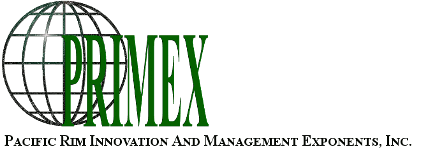“All Filipinos need to be informed about natural resources management, and sustainable watershed ecosystem management (SWEM) in particular,” said Engr. Felix Mirasol, Jr., Provincial Environment and Natural Resources Officer (PENRO) in his welcome remarks at the Needs Assessment Workshop of the ADB-assisted Decentralized Framework for Sustainable Natural Resources and Rural Infrastructure Management, Philippines (TA 7716-PHI) held on 16 February 2012 in Malaybalay, Bukidnon.
Mirasol, who represented the Department of Environment and Natural Resources (DENR), attended the gathering with other representatives from the local government units (LGUs) to participate in discussions on the findings and recommendations contained in the PRIMEX-ARMDEV T
eam’s Capacity Needs Assessment Report.
Dr Manuel Bonita, Team Leader/Watershed Management Specialist, highlighted the following identified needs:
- Clear interpretation of institutional mandates of watershed management-related institutions as defined by government policy, legislation, and executive/administrative orders;
- Clear understanding of relevant rules and regulations and systems for operation and maintenance (O&M) as well as the formulation of rules, regulations, and O&M systems if they do not exist or improvement/ augmentation if they exist but are inadequate;
- Formulation of day-to-day resource use and management systems that govern the workings of institutions, their staff, and the local/indigenous communities;
- Orientation and training of human resources to enable the implementation of institutional mandates, appropriate and effective conduct of assigned staff responsibilities, and productive conduct of livelihood activities by the local/indigenous communities; and
- Clear understanding of the natural and people-generated environments around which watershed management institutions, staff, and local/indigenous communities operate.
Ms. Elda Montera, Capacity Building Specialist and ARMDEV President, presented the list of training activities to be conducted under the TA. These include sustainable watershed ecosystem management (SWEM), rural infrastructure planning and O&M (RIPOM), sustainable livelihood, geographic information systems (GIS), gender and indigenous people, climate change, social marketing, and knowledge management and information technology (IT).
The project, which commenced in July 2011, supports capacity development in the regional and provincial DENR offices, participating LGUs, and communities in Bukidnon with the aim of increasing rural household income based on natural resources management (NRM). It covers the following six Bukidnon upper river basin (URB) watersheds: (i) Kitanglad-Manupali; (ii) Talakag; (iii) Sumilao Manolo Fortich – Malitubog; (iv) Malaybalay-Impasugon; (v) Baungon-Libona; and (vi) Kalatungan-Muleta.
